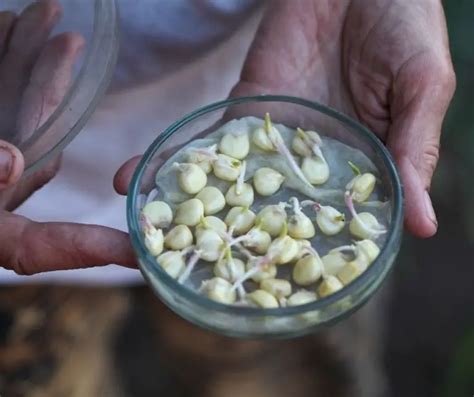Moringa Seed Germination: A Beginner-Friendly Approach
Moringa, often hailed as the "miracle tree," is renowned for its incredibly nutritious leaves, pods, and seeds. Growing your own moringa tree from seed is a rewarding experience, offering a sustainable source of this powerhouse plant. However, successful germination requires understanding the specific needs of moringa seeds. This guide provides a beginner-friendly approach to ensure high germination rates and healthy seedling development.
What are the best conditions for Moringa seed germination?
Successful moringa seed germination hinges on replicating the ideal conditions found in their natural environment. This includes warmth, sufficient moisture, and well-draining soil. Moringa seeds thrive in temperatures between 25-30°C (77-86°F). Lower temperatures significantly slow down or halt germination. Maintaining consistent moisture is crucial, but avoid overwatering, which can lead to fungal diseases and rotting. Well-drained soil prevents waterlogging, another common cause of seed failure.
How long does it take for Moringa seeds to germinate?
The germination time for moringa seeds varies depending on several factors, including seed viability, temperature, and moisture levels. Generally, you can expect germination to begin within 3-7 days. However, some seeds may take a little longer, up to 2 weeks. Don't be discouraged if you don't see sprouts immediately; patience is key.
How do you germinate Moringa seeds?
There are several methods for germinating moringa seeds, each with its own advantages. Here are two popular and effective approaches:
Method 1: Direct Sowing
This method involves sowing the seeds directly into the final growing location. This is ideal if you have a warm climate and suitable soil conditions.
- Prepare the soil: Choose a well-draining soil mix. You can amend heavy clay soils with compost or perlite to improve drainage.
- Sow the seeds: Plant the seeds about 1-2 cm (½ - ¾ inch) deep and 30-45 cm (12-18 inches) apart.
- Water gently: Water the soil thoroughly after sowing, ensuring it is consistently moist but not waterlogged.
- Provide warmth: Maintain a warm temperature (25-30°C). You may need to use a seed starter mat or place the planting area in a sunny, sheltered location.
Method 2: Seed Tray Germination
This method offers greater control over the germination environment, especially in cooler climates.
- Use a seed tray: Fill a seed tray with a well-draining seed-starting mix.
- Sow the seeds: Sow the seeds about 1-2 cm (½ - ¾ inch) deep.
- Water gently: Water the tray thoroughly but avoid overwatering.
- Provide warmth and light: Place the tray in a warm location (25-30°C) with indirect sunlight or use a grow light.
- Transplanting: Once the seedlings have developed a few true leaves (typically 2-3 weeks), carefully transplant them into individual pots or your final growing location.
What are some common problems with Moringa seed germination?
Several issues can hinder moringa seed germination. Understanding these challenges is crucial for success.
Seed Dormancy: Some moringa seeds may exhibit dormancy. Soaking the seeds in warm water for 12-24 hours before sowing can help break dormancy and improve germination rates.
Fungal Diseases: Overwatering is a primary cause of fungal diseases, leading to seed rot. Ensure excellent drainage and avoid overwatering.
Pest Infestation: Protect your seeds and seedlings from pests. Consider using natural pest control methods if needed.
How to improve Moringa seed germination success rates?
To optimize your chances of success, consider these tips:
- Source high-quality seeds: Use fresh, viable seeds from a reputable supplier.
- Soak seeds before planting (optional): Soaking can improve germination rates, especially with older seeds.
- Maintain consistent moisture and temperature: Monitor soil moisture and temperature regularly.
- Provide adequate sunlight: Once seedlings emerge, ensure they receive sufficient sunlight.
- Thin seedlings if necessary: If you direct sow and the seedlings are too crowded, thin them out to allow for proper growth.
By following these guidelines, even novice gardeners can successfully germinate moringa seeds and enjoy the rewards of growing this remarkable tree. Remember, patience and attention to detail are essential for achieving high germination rates and cultivating healthy moringa seedlings.

